Coffee is the most popular stimulant and flavored beverage in the world. Coffee is beloved by literally billions of people for its myriad benefits, which include better attentiveness, superior athletic performance, improvements in long-term health, a decreased risk of chronic disease, and even weight loss.
How could the lowly coffee bean be responsible for so many different benefits, and what are the top sources of coffee beans on the market?
Our researchers have ranked and reviewed the ten best coffee beans available, plus taken a close look at the very best research on the health and performance benefits of coffee.
Research
Rankings
1. Kicking Horse Coffee Kick Ass
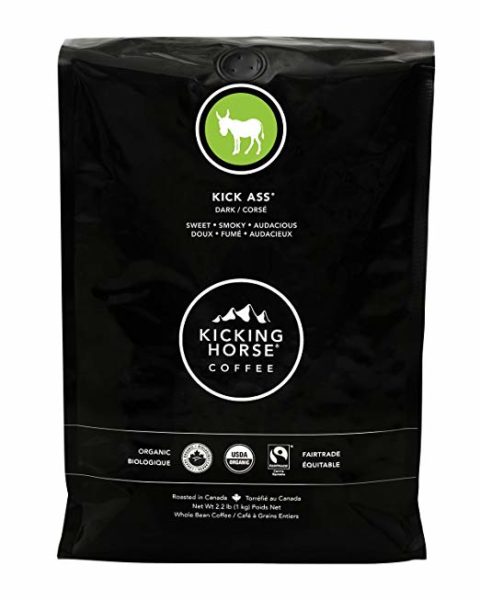
Kicking Horse Coffee Kick Ass is a dark roasted coffee that’s both organically certified and fair trade certified. It’s a blend of beans from Indonesia and South America and has a rich, chocolate-like taste and smoothness to it that’s rare among dark roasts.
Keep these beans sealed until you’re ready to use them, and freeze a portion of your beans if you aren’t going to go through this 2.2 pound bag too quickly to preserve the flavor.
2. Freshly Roasted Coffee Timor
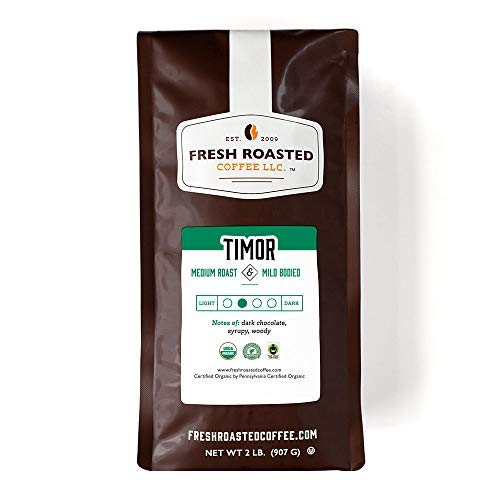
Freshly Roasted Coffee delivers exactly what the company name promises. Their Timor coffee is one of the best light roast coffees on the market: it’s from a single source in Africa, and the taste is light, citrusy, and airy.
Those looking for darkers roasts or specialty blends should look elsewhere, but if light roasts are your favorite, there’s no better option than Freshly Roasted Coffee.
3. Ethical Bean Coffee Classic
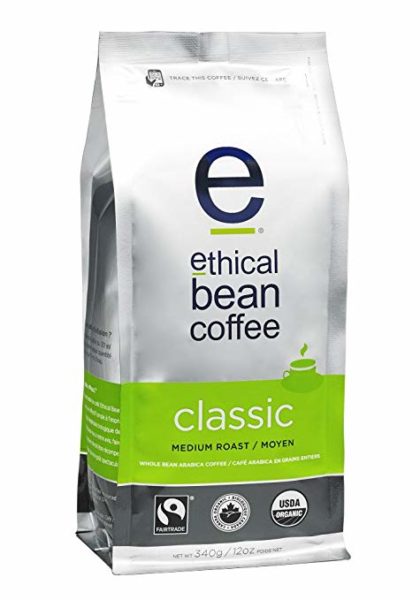
Ethical Bean Coffee Classic is a fantastic single-source medium roast coffee. It’s organic and fair trade, and comes in 12 ounce bags that are great for occasional coffee drinkers who don’t want to let a bigger bag go bad.
If you want a medium roast coffee that’s from a single locale, Ethical Bean Coffee Classic is definitely the way to go.
4. Stumptown Coffee Roasters French Roast
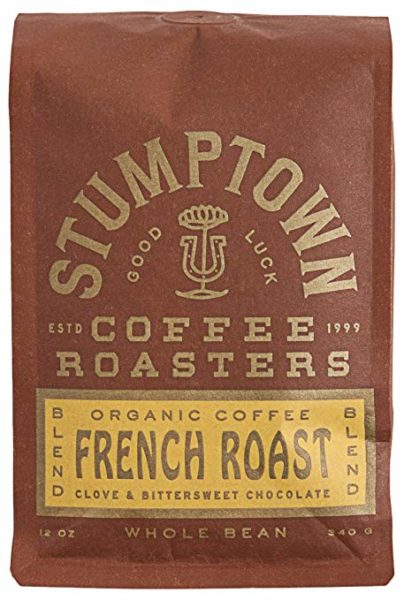
For those looking for a very dark and rich coffee bean, give Stumptown Coffee Roasters French Roast a try.
It’s certified organic and stays fresh for quite a while thanks to the sealed 12 ounce packages.
Stumptown is well-known throughout the Pacific Northwest, and its rich, complex taste is highly regarded among coffee aficionados.
5. Intelligentsia Black Cat Classic
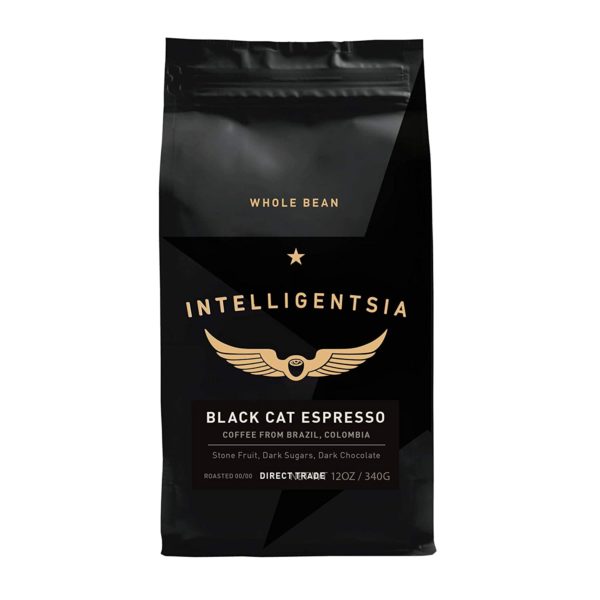
When it comes to espresso, there’s no better coffee than Intelligencia. This coffee roasting company is based out of Chicago, Illinois, and boasts some of the highest-rated coffee in the country, year after year.
Their Black Cat Classic espresso bean is shipped right after being roasted, so you’re guaranteed a fresh coffee bean.
You’ll need to grind these beans into a fine powder just like any whole bean espresso coffee, but for the highest quality cup of espresso, the extra effort and equipment is worth it.
6. Illy Caffe Coffee
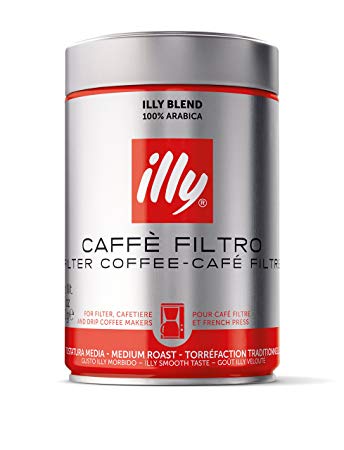
If you’re too busy to bother grinding your own beans, but still want coffee that’s as fresh as possible, Illy is the way to go.
This medium roast pre-ground coffee is sealed in 8.8 ounce canisters with non-oxidizing nitrogen gas that ensure that the beans stay fresh until being opened.
Since each individual cannister is small, even occasional coffee drinkers won’t have to deal with stale beans.
7. Stone Street Cold Brew
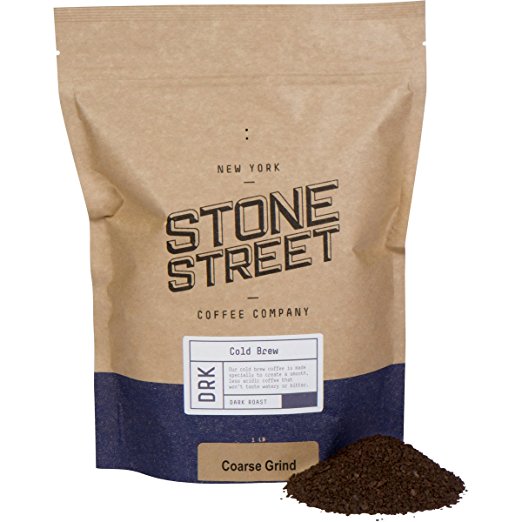
A good cold brew coffee is hard to find, but Stone Street makes one of the best. The beans are dark roasted and come pre-ground into exactly the kind of coarse grain that’s ideal for making cold brew coffee.
The high-quality package means that the coffee stays fresh for several weeks, even though it’s been ground already. When it comes to making cold brews, Stone Street is definitely the way to go.
8. Two Volcanoes Single Origin Gourmet Coffee
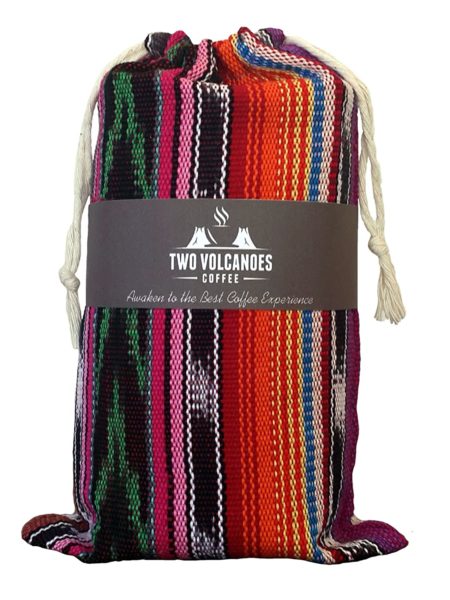
Two Volcanoes makes a very solid medium roast coffee that’s sourced exclusively from Guatemala. It’s an even-handed flavor that’s neither sharp and tart like a light roast, nor dark and smokey like a dark roast.
Those who gravitate towards extremes in coffee flavor might be disappointed by the lack of boldness, but if you want a smooth and unobjectionable cup of coffee to offer to a guest, Two Volcanoes is a good choice.
9. Cafe Bustelo
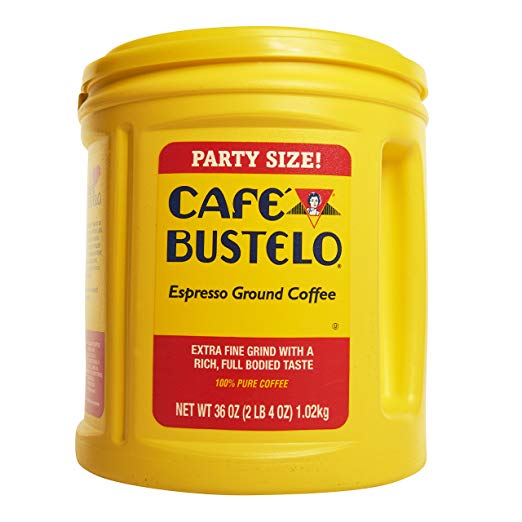
Cafe Bustelo makes a great pre-ground espresso coffee. It may not look like your typical artisanal coffee blend, but users rave about the smooth and reliable taste made from this pre-ground coffee.
A large container of pre-ground coffee like this is never going to be as fresh as vacuum-sealed whole beans, but that’s the tradeoff that you need to make for convenience.
Many people find this tradeoff worth it for espresso, since a good cup requires extra finely ground beans, which you get Cafe Bustelo.
10. Lavazza Super Crema
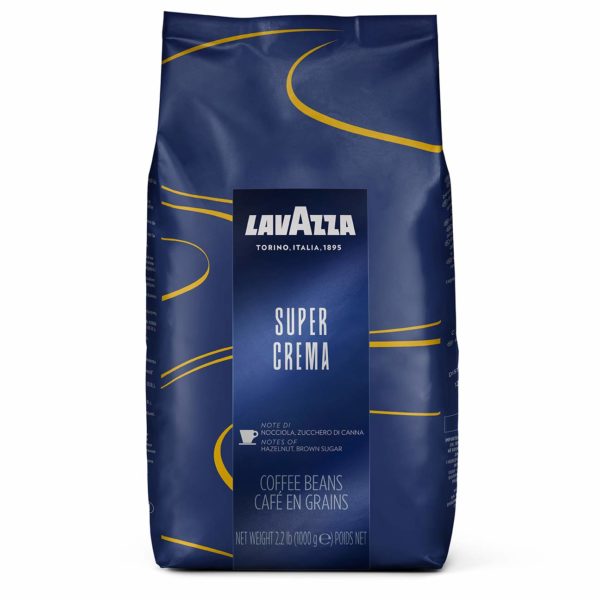
Lavazza Super Crema is a true Italian espresso bean—these 2.2 pound packages contain whole beans that are roasted and blended in Italy for an authentic cup of espresso.
However, the advantage of authenticity is counterbalanced by the necessary fact that these beans won’t be as fresh as something that’s roasted closer to home and shipped soon after being roasted.
Category winners
Best coffee overall: Kicking Horse Coffee Kick Ass
Kicking Horse takes our overall top spot thanks to its excellent, well-rounded taste. This smooth blend rich, chocolatey, and neither too dark nor too light, making it the best all-purpose choice.
Best coffee for espresso: Intelligentsia Black Cat Classic
Serious espresso drinkers should look no further than Intelligentsia for their beans. This single-source espresso coffee is the house blend at one of the top-rated coffee shops in the nation, and for good reason—the taste is top-notch.
Best decaf coffee: No Fun Jo Decaf
Need to lay off the caffeine for a bit? No Fun Jo is our favorite decaf coffee, using the Swiss water method to remove the caffeine but not the great taste from this medium dark organically-sourced coffee.
Best organic fair trade coffee: Ethical Bean Coffee
Looking for great-tasting coffee that doesn’t rely on pesticides, exploitive labor, and pollution? Look no further than Ethical Coffee Bean, which is both fair-trade-certified and organic. On top of that, Ethical Bean is a Climate Pledge signatory. Best of all, this coffee is an excellent-tasting medium roast!
Best dark roast coffee: Stumptown Coffee Roasters French Roast
For a smokey, earthy, rich dark roast, look no further than Stumptown Coffee Roasters French Roast. This ultra-dark roast is rich, but never tastes burnt or too acidic.
Best coffee for cold brew: Stone Street Coffee Cold Brew
For potent and fresh-tasting cold brew, Stone Street is our favorite. Even when paired with long steep times, this New York-based coffee roaster’s beans never come out bitter or acidic, making it perfect for cold brew enthusiasts.
Who Should Buy Coffee?
Coffee is safe for adults of all ages and is great for anyone needing a boost in energy or to fight off sleep. Coffee is great for athletes and gym-goers who want to maximize performance and strength during their training sessions.
Students can also benefit from coffee since it helps improve mental concentration. Coffee should be consumed in moderation by pregnant women and not at all by children.
How We Ranked
Coffee is one of the most popular beverages on the planet and comes in a variety of forms and qualities. Whole beans, while inconvenient, were preferred because they keep fresher longer as well as provide a better taste. This is why you’ll find products like Kicking Horse Coffee and Ethical Bean Coffee ranked so highly on our list. These products also included organic and fair trade certifications, which showed the quality and care the companies provided for the planet.
Coffee that was pre-ground like Cafe Bustelo ranked well as long as the freshness was kept high, and it was packaged in an airtight container. Instant coffees did not make the list due to their poor quality and taste. Pods didn’t make the list because they tended to be expensive, less fresh, and more processed than their whole bean counterparts. Furthermore, they are awful for the environment and don’t offer an excellent coffee experience.
Where the coffee was sourced didn’t have a dramatic impact on our rankings. However, we did try to include a variety of origins, including Indonesia, South America, Africa, and Asia, because they all provide different flavored coffee beans. Two Volcanoes coffee from Guatemala offered a clean and sweet flavor, whereas the Italian coffees, like Illy, tended to be shaper and offer a more pronounced flavor. Dark, medium and light roasts were all ranked the same because none have an advantage over one another and is merely a matter of preference.
Benefits
Coffee is an ancient beverage and also happens to be one of the most popular stimulants in the world. Coffee has developed an entire culture of preparation, serving, and consumption that’s incredibly geographically and culturally diverse, but moreover, coffee has been associated with numerous short and long-term benefits.
Coffee, and its primary active ingredient of caffeine, are together some of the most robust and versatile supplements for everything from cognitive and athletic performance to weight loss and long-term health.
Coffee is rich in antioxidants and contributes substantially to overall antioxidant levels in the blood. Like many healthy foods and beverages that have a rich, dark color, coffee has high concentrations of antioxidants.
Though the specific compounds are different, foods and drinks like coffee, dark chocolate, red wine, and goji berries all derive their taste and color from the free radical scavenging and inflammation-fighting structure of their key molecular components.
One scientific study published in 2004 in the Journal of Nutrition sought to examine the contribution of coffee consumption to overall antioxidant levels in the body (1).
The study looked at almost 2,700 Norwegian adults who filled out a detailed questionnaire on their dietary intake of various foods and beverages. The researchers also took blood samples from the same people and measured the levels of several biomarkers of antioxidant levels.
As predicted, greater dietary consumption of foods high in antioxidants, like coffee, wine, and vegetables, was associated with greater levels of antioxidants in the blood.
When the researchers parsed out the relative contributions of different types of food and drink to overall antioxidant intake, they found that the biggest contributor was coffee—typical levels of coffee consumption in these Norwegian adults added more free-radical scavenging capabilities to the body than fruits or vegetables!
While this might just be because fruit and vegetable intake was low in this cohort of study participants, this study nevertheless makes a strong case for coffee as an excellent source of powerful antioxidants.
Regular coffee consumption can help you live longer. Coffee is a continual source of research in epidemiology, given how many people drink it and how many biologically active compounds are contained in coffee.
Early research into coffee consumption and risk for diseases like cancer and heart disease produced some troubling findings—people who drink a lot of coffee appear to be at a greater risk for both of these diseases.
However, public health researchers quickly discovered that these findings were actually the result of smoking. Cigarette smokers are far more likely to drink coffee (and drink large amounts of coffee) than nonsmokers, hence the increased risk for cancer and heart disease among coffee drinkers.
Once researchers controlled for cigarette smoking, these trends reversed—coffee is actually beneficial for long-term health. Some of the latest findings on coffee and longevity were published in 2016 in the European Journal of Epidemiology by a team of international researchers (2).
This study examined the coffee consumption habits of over 1.6 million people, and tracked data on almost 200,000 deaths.
Based on previous research, the scientists carefully controlled for cigarette smoking and other potential confounding variables like gender, geographical area, and age.
They found that coffee consumption led to a significant decrease in “all-cause mortality”—death for any reason—among nonsmokers, with no observed upper limit on benefits.
Smoking mediated the benefits of coffee: smokers are still actually better off if they drink coffee, compared to smokers who do not drink coffee, but only up to about four cups of coffee per day. Thereafter, the benefits no longer accrue with greater amounts of coffee consumption.
Coffee is a powerful athletic performance enhancer. The use of coffee to boost performance is hundreds of years old, but research continues on the various physical benefits of coffee for athletes.
A review article published in the journal of Applied Physiology, Nutrition, and Metabolism by Louise M. Burke at the Australian Institute of Sport summarized the current state of the scientific literature when it comes to the most potent performance enhancer in coffee, which is caffeine (3).
Caffeine, even in modest amounts, is a potent performance enhancer in a wide range of athletic endeavours, from endurance events to team sports and intermittent high-intensity interval sports like soccer or tennis.
The benefits for a single sprint or for weight lifting are less clear. The optimal amount of caffeine for physical performance can be garnered from about 16 ounces of coffee, so it doesn’t take a whole lot to boost your performance.
There’s less research on whether the other biologically active compounds in coffee create athletic benefits, so for now, decaf coffee is not a good idea if you want to improve your physical performance (it does, however, seem to grant many of the same long-term health benefits).
Coffee can boost your mental performance. Coffee is one of the oldest and strongest nootropics—a category of supplements that augment your natural cognitive abilities to make your memory, attention, and overall mental performance better.
The ability of coffee to enhance reaction time and acuity are well-known.A study published in 2018 in the journal Nutrients demonstrated that coffee increase alertness, improves reaction time, and decreases feelings of tiredness among both younger and older people (4).
Interestingly, even decaffeinated coffee appeared to increase alertness compared to a true placebo, which raises the possibility that the short-term cognitive benefits of coffee are not limited to the effects of its caffeine content.
Some research also suggests that long-term coffee consumption may protect your brain against cognitive decline later in life, though studies are conflicting.
According to a review article published in 2015 that pooled the results of multiple studies, some research has found that coffee consumers are at a decreased risk of dementia and Alzheimer’s disease later in life, while other research has not found this association (5). More research is underway, which should provide a more definitive answer.
Side effects
Coffee consumption is quite beneficial, but also has the potential to cause a number of side effects. As many people have experienced first-hand, abruptly reducing coffee consumption can cause symptoms of withdrawal.
However, much of this effect may be psychological, so it can be difficult to identify exactly which symptoms are due to the removal of coffee, per se.
One innovative study published in 1992 in the New England Journal of Medicine used a clever approach: the researchers recruited regular coffee drinkers, then told them to cease drinking coffee (6).
Half the subjects were given a caffeine pill, while half the subjects were given a placebo, but the subjects were blinded to which treatment they received. All of the subjects completed a battery of mental tests to assess what symptoms could be attributed to coffee withdrawal.
The researchers found a statistically significant increase in depressive and anxiety symptoms, plus worse performance on a reaction time test.
These results indicate that withdrawal from coffee consumption could have many of the opposite results of drinking coffee: your mood gets worse, you feel anxious, and your reaction time is degraded.
Conversely, caffeine in high amounts can cause acute side effects like jitteriness, anxiety, and nausea.
If you drink a lot of coffee, or if you are particularly sensitive to the effects of caffeine, you may experience these acute symptoms due to the high dosage of caffeine you get after drinking several large cups of coffee.
Fortunately, it appears that at least some of the health benefits of coffee can be gained with decaf coffee. A study published in the Journal of the American Medical Association reviewed the evidence, and concluded that even decaffeinated coffee appears to decrease the risk of type two diabetes (7).
As we’ve seen above, many of the benefits of coffee can be attributed to the antioxidant content, which is not substantially reduced by the decaffeination process
Is there anyone who should not drink coffee? Some research suggests that particular kind of coffee could raise your blood cholesterol levels.
Specifically, coffee that does not pass through a filter (like a French press coffee or an espresso) contains compounds called diterpenes which are associated with higher levels of blood cholesterol.
A study in the Journal of Agricultural and Food Chemistry tested the same coffee beans in different styles of coffee preparation to determine how diterpene levels are affected by coffee filtration (8).
The researchers found that any type of coffee preparation that involved a filter created a brew with practically no diterpenes, but non-filtered coffee did have significant levels of diterpenes.
Does this translate into an actual increase in blood cholesterol levels? One study in the New England Journal of Medicine pegged the increase in total cholesterol levels after nine weeks of drinking unfiltered coffee (boiled, in this case) at 10% (9).
If you know that high cholesterol is a condition that you have, or a condition that you are at risk for, it makes sense to restrict yourself to coffee brewed using a paper filter, like a Chemex or drip coffee.
One final side effect to keep in mind with regards to coffee is all of the other ingredients that you might add to your cup of coffee.
While drinking five cups of coffee per day appears to be healthy, that effect might change if you add a heaping spoonful of sugar and a large helping of cream to every cup of coffee that you drink.
All of that sugar and fat could counteract many of the cardiovascular benefits of coffee. For health, it’s probably best to drink your coffee black.
For taste reasons, you might want to add a sweetener: think about trying something like stevia or erythritol in your coffee instead of sugar, though.
Recommended intake
As we reviewed above, careful analysis of the dose-response relationship of coffee consumption and all-cause mortality shows no upper limit on coffee consumption and health, but the outcome of this analysis is limited by the relatively small number of people who drink extreme amounts of coffee on a daily basis.
Research that has focused exclusively on cardiovascular disease has pegged the optimal amount of coffee for heart health at about three to five cups per day (10).
A 2013 study published in the journal Circulation by researchers at the Harvard School of Public Health looked at risk of cardiovascular disease among 1.2 million subjects across several prospective studies.
The researchers found that three to five cups of coffee per day was the optimal amount of coffee consumption for reducing the risk of cardiovascular disease among the subjects in their meta-analysis.
Keep in mind, though that a “cup” of coffee in the context of epidemiological studies is usually eight fluid ounces. A “small” coffee from a coffee shop is usually 12 ounces, or 1.5 “cups.”
There’s clearly some uncertainty associated with the optimal amount of coffee, because all of this research is based on self-reported coffee consumption.
Food frequency questionnaires represent an aggregated average—so someone who drinks “1 cup of coffee per day” in a study might have reported three cups on Monday, three cups on Friday and one cup on Sunday during the week covered by the food frequency questionnaire, which averages out to one cup per day.
FAQ
What are the health benefits of drinking coffee? Drinking coffee increases the number of antioxidants consumed, and antioxidants can help to fight off certain diseases (11). Coffee is also known to lower the risk of some heart diseases.
Are more expensive coffees better to consume? There is no improved taste by drinking an expensive latte from Starbucks than if you brewed your own cup at home. There are also no health benefits by drinking more expensive coffee. Expensive coffee often has to do with a mix of where the beans were sourced, the freshness level and the marketing of the company selling the coffee.
How much coffee is safe to consume in a 24 hour period? Drinking more than 4 cups of coffee a day can cause increased heart rates, heartburn, and other unpleasant side effects. Even decaffeinated coffee can contribute to similar side effects.
How does coffee affect the body? Caffeine is a drug that can provide some positive effects such as improved attention and increase alertness (12). Too much coffee can cause side effects such as a rapid heart beat and high blood pressure.
Can coffee cause nausea or vomiting? If you consume too much coffee, your body might feel some side effects like nausea or vomiting. Keep your consumption moderated, and you shouldn’t feel any ill side effects from caffeine or coffee.
Is coffee better to drink for your health than tea? Neither has been proven to be better or worse. While more Americans drink coffee than anything else, tea is the most consumed beverage in the rest of the world.
How many kinds of coffee are there? Well, there are different types of coffee beans, which can produce different flavors as well as over 100 different types of coffee species.
How many calories are in a cup of coffee? A cup of black coffee with no additives has almost zero calories. Depending on how much cream or sugar you take in your coffee, your cup of coffee could end up with several hundred calories or more.
Can you drink coffee while pregnant? It’s a up for debate and not recommend, but based on science it’s safe to consume some coffee in moderation. One cup of coffee in the morning shouldn’t harm you or your fetus.
How much caffeine is in one cup of coffee? One cup of coffee averages about 95 milligrams of caffeine, with decaffeinated coffees containing less than 5mg. If you’re trying to avoid caffeine completely, you’ll need to stay away from the decaf as well.
Does coffee make you have to go to the bathroom? The caffeine in coffee will make want to pee since it’s a diuretic. The magnesium in coffee could give you a more frequent urge to have a bowel movement.
What is the best temperature to brew coffee? It is best to brew coffee is 205 degrees Fahrenheit, which is below the boiling point of 212 degrees. If you boil it, you run the risk of burning the beans.
Where should you store your coffee beans? You want to store coffee beans in a dark, cool room in an airtight canister.
What’s the difference between cold-brewed coffee and iced coffee? Iced coffee is just regularly brewed coffee with ice added to it. Cold-brewed coffee made by soaking the beans in cold or room-temperature water for at least 12 hours. This process helps extract sugars and caffeine and enhances the taste of the coffee.
Is coffee vegan? Yes, ty itself, black coffee is vegan.
Will coffee help you lose weight? Chances are, coffee will not make you lose weight unless its combined with a proper exercise and diet program. It might suppress your appetite, which will cause you to eat less, which could lead to weight loss.
What is bulletproof coffee? Bulletproof coffee is adding butter to coffee. People on high-fat diets, like the keto diet, add butter to their coffee and call it bulletproof coffee. The logic is that the fat in butter will speed up metabolism and increase weight loss, although the science is kind of mixed around this..
What is an americano coffee? An americano coffee is a type of coffee that takes a single shot of espresso and waters it down by adding 6-8 ounces of hot water.
What is instant coffee? Instant coffee is just powdered coffee that you add to hot water. True coffee drinkers frown on instant coffee, and it’s not typically considered a good cup of coffee.
Does the water quality in your coffee matter? While the coffee bean is going to be most responsible for how your coffee tastes, since your cup of coffee is 95% water, the water quality does matter. You want to use the cleanest water you can, preferably water that has been filtered thoroughly or ideally distilled.
Why does your coffee taste bitter? Your coffee may taste bitter if it’s overcooked. This often happens if the brewed coffee pot stayed sitting on the heating element for too long, essentially overcooking the coffee. Reheating coffee in the microwave can also alter the taste of it.
Does coffee contain gluten? Coffee is made from beans and is considered gluten-free. If you have a high gluten sensitivity, you might want to check with the manufacturer to ensure that their brand of coffee is manufactured in a facility without gluten cross-contamination.
Is espresso coffee? Very strong and bitter, espresso is different tasting than coffee. It is technically considered a more concentrated version of coffee. Coffee beans used to make espresso usually stay planted in the ground longer than regular coffee beans, and they are also ground down to specks of finer dust than the average coffee bean.
Where does coffee grow best? Coffee needs to grow in warm, tropical climates, which limits where it can thrive. Columbia is widely considered the best place to grow coffee beans, and Guatemala and Costa Rica are considered the next best locations. In the United States, there are actually only two states able to grow coffee beans: California and Hawaii.
Related Articles
Recap
The weight of the best scientific evidence suggests that coffee is very beneficial for both your health and performance.
In the short run, coffee boosts your mental acuity, improves your reaction time, and decrease feelings of tiredness.
Some (though definitely not all) of these benefits may even extend to decaf coffee too. Coffee also boost aerobic endurance and performance in high-intensity intermittent exercises and team sports.
Over the long run, coffee drinkers live longer than coffee abstainers, after controlling for the effects of smoking.
These longevity benefits are increased for people who consume more coffee, though for heart health, the optimal amount of coffee consumption appears to be around three to five cups per day.
Coffee is an extremely rich source of antioxidants, which likely contributes to its longevity-boosting effects.
Due to its caffeine content, coffee does have the potential for some side effects, like jitteriness, nausea, and sleeplessness (though many people use coffee precisely for this “side effect”).
A sudden stoppage or decrease in coffee consumption can also cause caffeine withdrawal, which is associated with an increase in feelings of depression and anxiety, as well as worse mental alertness and a slower reaction time.
Coffee that’s prepared in a method that does not involve filtering, such as French press or boiled coffee, can also raise your cholesterol levels. Using a paper filter alleviates this concern.
When used correctly, regular coffee consumption (even quite high levels of daily intake) is beneficial for both short term physical and mental performance as well as long-term health and longevity.
For Body Nutrition’s #1 coffee recommendation, click here.